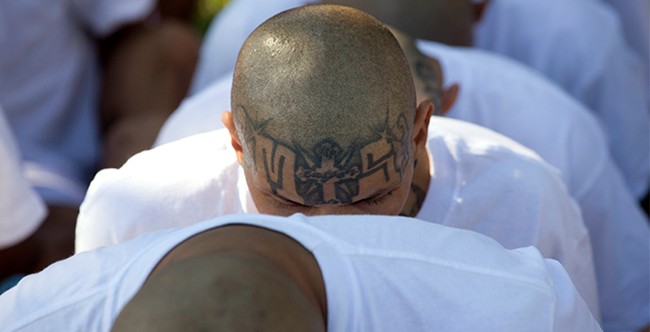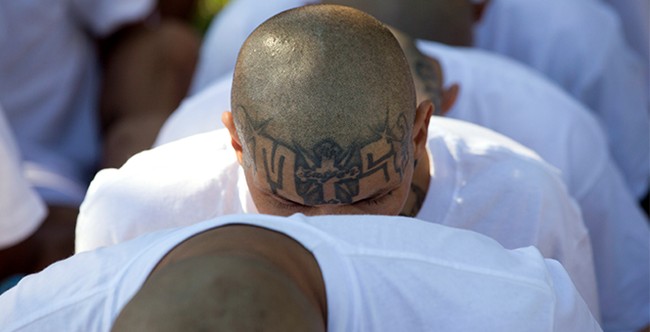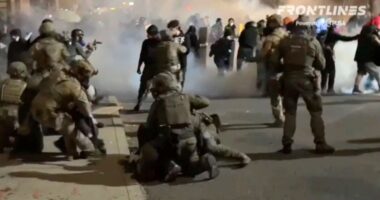
The Justice Department requested an emergency stay of an order mandating the return of an adjudicated MS-13 member to the United States. The request teetered on insulting the district court judge who issued the order, describing it as ill-conceived. The Justice Department’s succinct brief dismantled the entire process, mocking the order from Judge Paula Xinis appointed by Obama. The order aimed to facilitate Kilmar Abrego Garcia’s return to the US by Monday night. However, the brief pointed out the US’s lack of authority over Abrego Garcia, likening it to being unable to enforce a court order ending a war in Ukraine or retrieving hostages from Gaza.
Garcia, a citizen of El Salvador, has been depicted as a “Maryland father” in various news reports. He illegally entered the US in 2011 and was arrested in 2019 for alleged involvement with the violent Salvadoran gang known as Mara Salvatrucha or MS-13. Although he sought political asylum, his application was rejected. Subsequently, he received a removal order, which was temporarily suspended by a judge due to safety concerns should he return to El Salvador. In early March, Garcia was apprehended and transported to El Salvador and the Terrorist Confinement Facility, CECOT.
Last night, a collaborative military operation involving allies from the United States successfully transferred 17 highly dangerous individuals affiliated with Tren de Aragua and MS-13.
All individuals are confirmed murderers and high-profile offenders, including six child rapists.
This operation… pic.twitter.com/Tk1Xq7vnuB
— Nayib Bukele (@nayibbukele) March 31, 2025
His attorneys sued, and a judge ordered the Trump administration to return Garcia to Maryland. In her order, the judge called the deportation “an illegal act.”
When White House spokeswoman Karoline Leavitt reacted by , “We suggest the Judge contact [El Salvador’s] President [Nayib] Bukele because we are unaware of the judge having jurisdiction or authority over the country of El Salvador,” it struck me, and many others, as the kind of remark you can make if you are in no danger of facing the judge in a courtroom. As it turned out, she perfectly captured the tone of the administration’s request for a stay of her order.
High Points
The first response was that the judge’s order is impossible to comply with.
The district court’s order—a command to “facilitate and effectuate” Abrego Garcia’s return from a foreign country by midnight on Monday—is unlawful. There is no likelihood that it would survive review on appeal.
…
The order below is neither possible nor proper. As noted, Abrego Garcia is an El Salvadoran national, being held in El Salvador, at the hands of the El Salvadoran government.
The conclusion is my favorite.
Because the United States has no control over Abrego Garcia, however, Defendants have no independent authority to “effectuate” his return to the United States—any more than they would have the power to follow a court order commanding them to “effectuate” the end of the war in Ukraine, or a return of the hostages from Gaza.
The government’s argument is that Garcia had a final deportation order, so the district court judge erred in hearing the case because it was outside her jurisdiction.
Even putting aside these fundamental defects, the order below also runs into a statutory bar. Section 1252(g) strips district courts of jurisdiction to review “any cause or claim by or on behalf of any alien arising from the decision or action by the Attorney General to … execute removal orders 11 against any alien” under the INA, except as otherwise provided in § 1252. 8 U.S.C. § 1252(g) (emphasis added). This is such a suit. The district court thus lacked jurisdiction over this case, and lacked authority to issue its order.
No one cares if Garcia had a previous order suspending his deportation, and his lawyers realize that even if the judge doesn’t.
But as the Supreme Court has made clear, removal orders and withholding orders are “distinct.” Johnson v. Guzman Chavez, 594 U.S. 523, 539 (2021). And just as important, a withholding order does not “affect the validity of the underlying removal order.” Id. at 540. Accordingly, even if a removal runs afoul of some other legal bar (such as withholding relief), it is still the “execution” of a “removal order” under the very terms of § 1252(g). The federal courts thus cannot act upon any “claim” challenging such an execution, “[e]xcept as provided” elsewhere § 1252—an exception not even Plaintiffs have argued applies here.
Garcia didn’t ask to be returned to the United States; the order demanding such is illegal.
He did not claim an entitlement to be in the United States; nor did he raise any concerns with being sent to some third country. In that light, ordering Abrego Garcia returned to the United States—and only the United States—was an invalid and untailored request. And it further compounded the district court’s overreach. As a matter of both sound immigration policy and responsible foreign policy, the United States regularly relies on being able to remove aliens to third countries, when there are issues with returning them to their place of origin. The district court erred in interfering with that.
In theory, the government could honor Garcia’s demand by sending him to Afghanistan, as he only objects to being held in El Salvador.
Already we can see that Judge Xinis was much more interested in burnishing her Resistance cred than dealing with a legal case.
There is no public interest served by bringing a member of a transnational terrorist group back to the United States.
Accordingly, while there is no doubt a “public interest in preventing aliens from being wrongfully removed,” Nken, 556 U.S. at 435, there is an overwhelming public interest in not importing members of violent transnational gangs into this country, see id. at 436 (noting a heightened “interest in prompt removal” if an “alien is particularly dangerous”).
…
It is true that an immigration judge concluded six years ago that Abrego Garcia should not be returned to El Salvador, given his claims about threats from a different gang. Final Removal Order 7–10. That conclusion was dubious then (and increasingly so now). But it has become totally untenable, given the Secretary of State’s designation of MS-13 as a Foreign Terrorist Organization in February. 90 Fed. Reg. at 10030–31.
And finally, the Justice Department demolishes Garcia’s claim that he will be subject to torture in El Salvador.
Final Word
The government’s brief conclusively takes apart every aspect of Garcia’s case. He had a deportation order; he had MS-13 connections that make him ineligible to enter the US; and the judge not only doesn’t have the clout to make El Salvador send him back to the US, she isn’t legally allowed to hear the case.
This case is headed to the Fourth Circuit, where we can hope they will give Judge Xinis’s desire to possess magical powers short shrift.
READ THE STAY APPLICATION
Abrego Garcia vs. Noem by streiff on Scribd
FIGHT to get 60% off your membership.

















